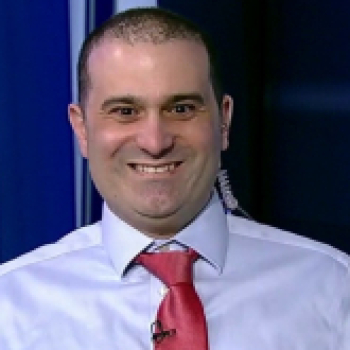Jean-Pierre Danthine, Vice-Chairman of the Governing Board of the Swiss National Bank
Foire du Valais, Martigny, 09.10.2014
Over the past few years, central banks have applied an entire arsenal of instruments to mitigate the financial crisis and its aftermath. They are also assuming a more active role in regulation. So, have they become too active?
After the onset of the financial crisis, central banks acted decisively to cut interest rates, and provided large amounts of liquidity in their role of lender of last resort, thereby helping to prevent the collapse of economies and of the financial system. Even so, the recovery was feeble and unemployment remained high. Yet with short-term interest rates already close to zero, the set of conventional monetary policy instruments was exhausted. Central banks were thus forced to turn to unconventional instruments to stimulate economic activity. The two main weapons were large-scale purchases of long-term securities (quantitative easing) and the commitment to keep short-term rates low for a specific period (forward guidance).
However, the Swiss National Bank (SNB) was in a special situation as it was confronted with a huge appreciation of the Swiss franc. In September 2011, it set a minimum exchange rate for the euro, having previously applied other unconventional measures. The minimum exchange rate reduced the risk of deflationary developments, and it is still the SNB's main tool in ensuring price stability and thereby fulfilling its mandate. Experience since the onset of the financial crisis, and in particular the minimum exchange rate, show how important it is for the SNB to be able to react flexibly. This freedom of monetary policy manoeuvre would be massively curtailed by the gold initiative, with its requirement for a minimum share of the SNB's assets to be held in gold, combined with a prohibition on gold sales.
The crisis has revealed two shortcomings in regulatory practice to date: First, it focused too strongly on the management of crises, and too little on their prevention. Second, it did not sufficiently address the systemic risk that can emanate from very large or highly interconnected financial institutions. In this regard, central banks possess the necessary tools and competences. Accordingly, they have reinterpreted their mandate in the area of financial stability.
So, far from doing too much, central banks have in fact done what needed - and still needs - to be done.








Add a Comment
We encourage you to use comments to engage with other users, share your perspective and ask questions of authors and each other. However, in order to maintain the high level of discourse we’ve all come to value and expect, please keep the following criteria in mind:
Enrich the conversation, don’t trash it.
Stay focused and on track. Only post material that’s relevant to the topic being discussed.
Be respectful. Even negative opinions can be framed positively and diplomatically. Avoid profanity, slander or personal attacks directed at an author or another user. Racism, sexism and other forms of discrimination will not be tolerated.
Perpetrators of spam or abuse will be deleted from the site and prohibited from future registration at Investing.com’s discretion.